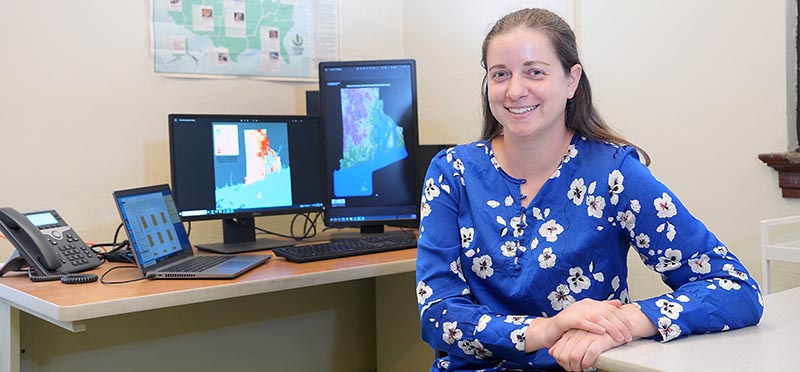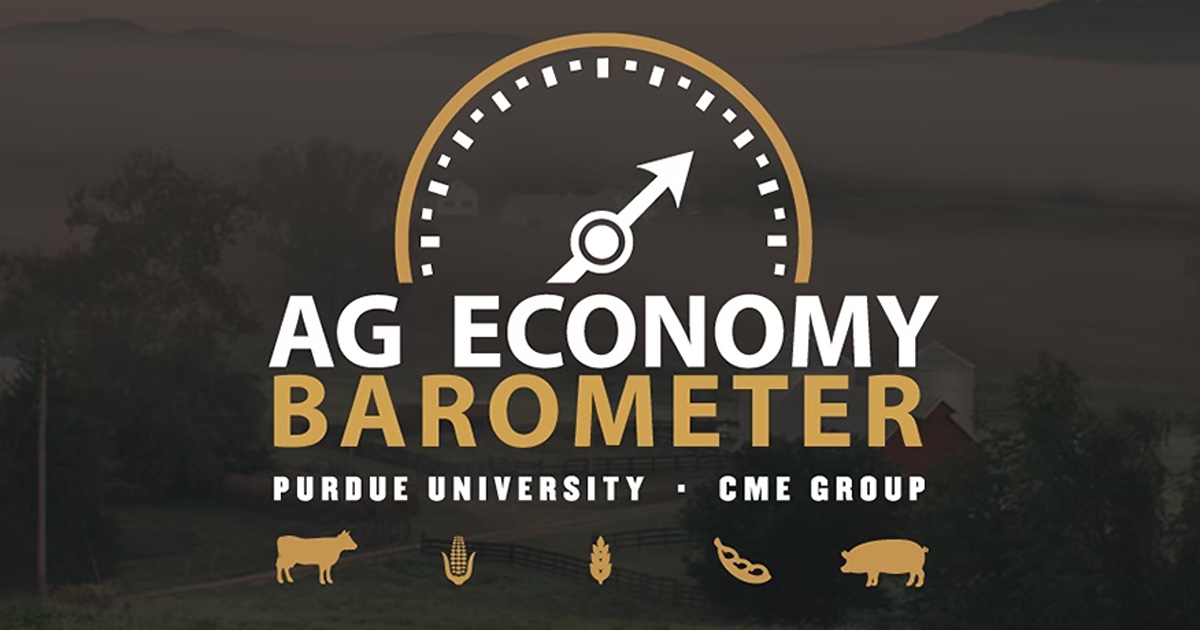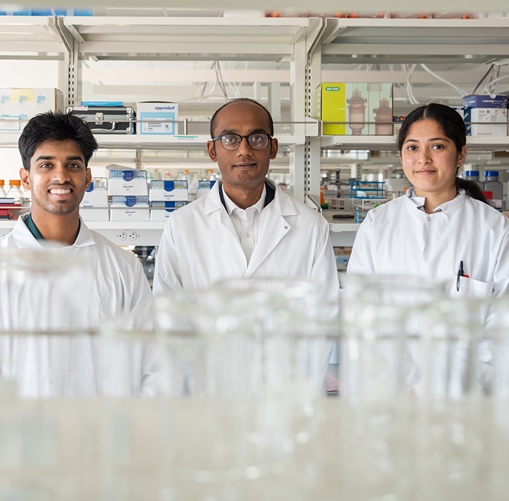Mary Strickland - Graduate Ag Research Spotlight
I really want to be able to understand decision-making processes, because in the future I want to be at those tables.
- Mary Strickland, PhD student in natural resource social science, Department of Forestry and Natural Resources
The student
Mary Strickland is a lifelong animal lover — so much so that she admits to occasionally skipping classes at Columbus East (Indiana) high school to walk dogs at the local humane society. At Purdue, she earned a bachelor’s degree in wildlife in the Department of Forestry and Natural Resources. To broaden her exposure outside the Midwest, she then completed a master’s degree in biology at Georgia Southern University, where her research focused on the shorebird Wilson’s plover and the ecology of Cumberland Island. Strickland spent the next few years in Virginia on the small mammal team of the National Ecological Observatory Network and in Arizona, where she worked for a contractor alerting U.S. Air Force training personnel to the presence of Sonoran pronghorn in the Gila Bend area. “As a biologist working with pronghorn, I was frustrated by protecting them on a day-to-day basis but without long-term strategies,” she says. The experience prompted Strickland to pursue a PhD so she could one day lead the relevant conservation groups to develop those long-term strategies. “I knew the ecological side of things, but I needed to learn the human side of policy-making to make better decisions in the future.” She returned to her home state, and after spending six months with the Indiana Department of Natural Resources, joined the Human Dimensions Lab of Zhao Ma, professor of natural resource social science, in January 2021. “I had no background in social science, but Dr. Ma must have seen something in me that made her believe I was determined to figure it out,” says Strickland, who is also part of Purdue’s Ecological Sciences and Engineering interdisciplinary graduate program.
THE RESEARCH
“I work with people,” Strickland says. “The ultimate goal is to help decision makers in Rhode Island to better mitigate and adapt to environmental impacts now and in the future.” She is collaborating with the Narragansett Bay National Estuarine Research Reserve to identify barriers to and opportunities for supporting community resilience to climate change impacts. Rhode Island, the smallest U.S. state — but one with 400-plus miles of coastline — has seen sea level rise occurring faster than projections. Strickland says. “This is not just a coastal situation; the whole state is suffering. It’s complex, and I could feel how much the government officials and environmental agencies care, but they’re limited on capacity and resources.” Her research is supported by a Margaret A. Davidson Fellowship Grant through the National Oceanic and Atmospheric Administration’s Office of Coastal Management.
opportunities
Strickland credits her advisor with patiently helping her to focus on her research and guiding her through the grant application process. The grant enabled Strickland to spend six months in Rhode Island as a home base for qualitative data collection, meetings, webinars and conferences. “Regional and local conferences provide a lot more information and networking opportunities for someone like me who’s interested in on-the-ground work,” she says. “Both the regional and local conferences also helped me understand the need for and validity of my research throughout New England and not just in Rhode Island.”
future plans
After completing her PhD in 2025, Strickland will seek a position that taps both her science background and social science skills, and allows her to coordinate policy discussion with multiple stakeholders to solve pressing social-ecological problems. Away from campus, Strickland volunteers weekly at Almost Home Humane Society. As a member of the Indiana Native Plant Society, she has created a native garden behind her home and is working toward more sustainable plantings.






